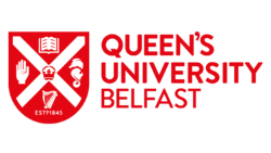ESR 10
Governmentality of Public Participation in Renewable Energy (ESR10)
Queen’s University Belfast
This project seeks to understand how the governance of public participation in renewable energy projects may foster or hinder social acceptance of individual projects and more broadly, of the low carbon energy transition. In doing so, it adopts the Foucauldian approach of governmentality to dissect the concept of public participation and evaluate how current instruments, processes and discourses around participation relate to social acceptance.A Governmentality approach allows a more critical analysis of participation by examining how the process of participation around wind energy projects is conducted and facilitates an assessment of how this relates to the wide power relations that are inherent in the long term process of energy transition. To do this, the project will examine what is actually being done in participative processes rather than what should be done. This analysis will be based on a comparative analysis of four empirical case studies – two in the Republic of Ireland and two in Denmark, selected to highlight a diversity of project scale and type of participative process. The analysis of these case studies will be based on qualitative methods that will include interviews with local stakeholders (n= c30 x4), policy analysis and discourse analysis.The empirical investigation will seek to understand; 1. How social acceptance is problematized in each case study; 2. How the ‘technologies’ of participation, such as the aspiration to reach consensus or the aim to progress the energy transition relates to the local power context around specific projects; 3. What are the overall rationalities discernible by the use of these problematizations and technologies and ultimately how do these relate to the aspiration of social acceptance of renewable energy?The project will produce a critical review of the mapping of the types of participative opportunities, techniques and processes deployed in the context of wind energy projects, along with their stated purpose and efficacy, with 4 empirical case studies of public participation processes related to wind energy projects, and recommendations on the types of participative processes that may be more effective in engaging local communities and a wider critique of the broader institutional framework for participation in the context of energy transition.
Click here to download the ESR10 job description
Project supervision
Professor Geraint Ellis
School of Natural and Built Environment
Queen’s University Belfast
Dr Brendan Murtagh
Reader
School of Natural and Built Environment
Queen’s University Belfast
Dr David Rudolph
Researcher
Department of Wind Energy
Technical University of Denmark

